New Interview with Dave Stewart on "Amitié", Solo Work & Eurythmics
Eurythmics Video Visionaries would like to thank Mark Stevens for generously allowing us to publish an edited version
of his exclusive Q&A with Dave Stewart.
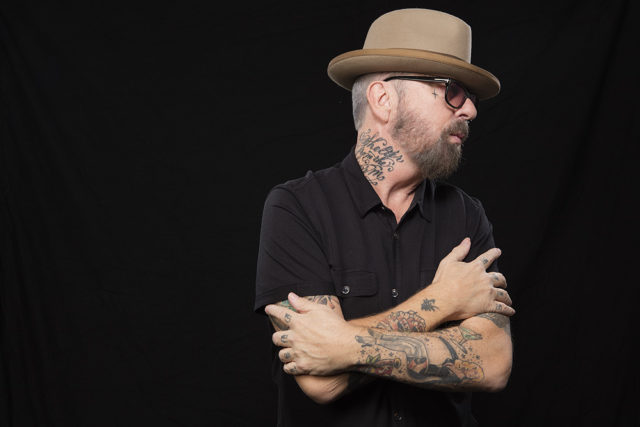
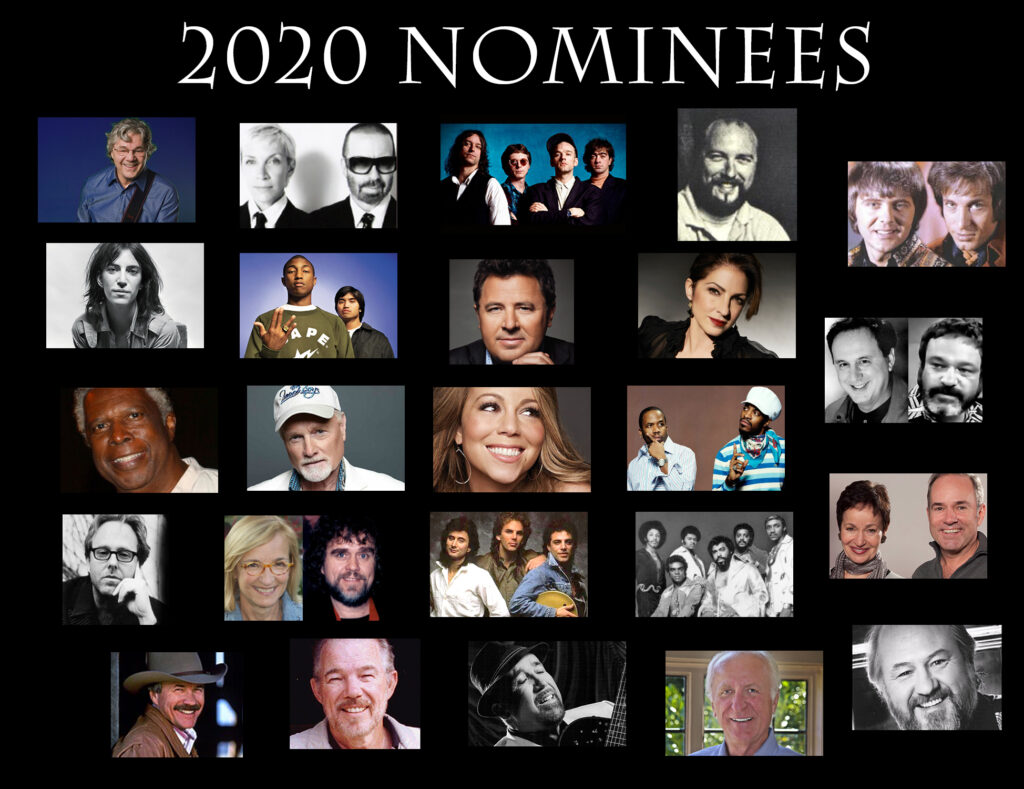

Thank you so much, Dave, for speaking with me today. How are you?
“I’m doing fine, because I’m on a tiny 2-mile-by-1/2-mile island, and I’m not in the middle of Washington or Los Angeles or these places that are having a really hard time at the moment.”
I imagine the Bahamas would be a much-better place to be.
“I actually live here. I reversed my life so instead of going on two-week holidays and then only getting to relax on the last two days, I thought, ‘Why don’t I live in a place where I can chill out and relax and go to New York or London or LA or Chicago or wherever I need to go?’ ”
So I know you and Annie were announced as inductees into the Songwriters Hall of Fame. So are you in now? Or is that on hold?
“We haven’t had the ceremony, but we’ve been inducted, you know what I mean? The ceremony was supposed to be June or something like that, but obviously that’s not a good idea right now.”
Dave, the last time I spoke with you was in 2008 for your Rock Fabulous project. You were on the phone with me and at the same time you were going through photos to choose for the book connected to the Rock Fabulous project. You’re famous for multi-tasking, aren’t you?
“I’m one of those characters that, you know, at first, people used to say, ‘Hey, man, you should stick to straight just one thing.’ You know, like managers or record label people. But now people aren’t saying that anymore. I carried on doing things I enjoy living in different worlds, and, fortunately, I survived. Even though Eurythmics, as a touring band no longer exists, we haven’t toured since 1999 when we gave all the proceeds to Amnesty and Greenpeace on the PeaceTour. So that’s like 20 years surviving through the Internet, watching as the music industry crashed and no touring, really.”
What was your plan all along?
“I tossed myself into trying to understand how to make the industry more transparent and fair and how to sort of work on projects that had music within them. I wasn’t relying on record royalties or stuff like that. I have a catalog of songs that never seem to go off the radio, so I was being paid by BMI and that helped. And I used that money to try and create worlds that allowed music to carry on in some way. I did a lot of work with the new BMG that works on a completely different system of payment and for transparency. I just tried to create something that was a system that made the food chain kind of just. I was trying to do all this while people were trying to work out what was going on and what was going to happen. Now that it all has happened and all hell has broken loose, there are million different people using music for all sorts of sources, and record companies are actually collecting massive amounts with just putting out their catalogs for various streaming services. And now we are wondering how does anybody or any band or an artist make a living? How does the new young artist in the new world get by? I’m busy building something at the moment — an app that might possibly help.”
But you haven’t stopped recording.
“Meanwhile I’m recording new artists, and I’ve formed a little record label called Bay Street Records. And any deal I do with a new artist – all those deals are totally transparent 50-50 profit sharing and, of course, I fund it. I am just constantly working with new artists and working with legend artists and, in the meanwhile, trying to figure out how everybody makes it through. I’m mainly thinking about artists who have just started out, but they’ve lost revenues. But if you take a look at the whole situation at the moment and all these people who have lost their jobs there they are running a general store or working for a small company and lost their job during the pandemic and on top of that we have the protests going on and it’s a total tipping point and almost a perfect storm for something else to happen whatever that other thing may be.”
Will there be a “new normal”?
“People are actually starting to realize that it’s not going to go back to what it was, because it’s going to be an impossibility for a lot of companies and a lot of people. I’m writing a song right now for the people on the island. I’ve got a guy coming in to play calypso, a young girl singer, all local people. I wrote a song, and the chorus is ‘The simple things aren’t so simple anymore, we’ve been taken things for granted.’ It’s kind of explaining some of the things — the general way people were starting to behave, not even communicating except by text. We’ve all got a phone and with a touch of a button, there’s Amazon, and we’re ordering things. It was becoming an ominous future to me, where people used to sit and discuss what was happening in a pub or park and made decisions about their families. Everyone was on the same wavelength, and I think that has to come back.”
Even among all the chaos, I’ve never known you not to be working. Since we last talked, you’ve recorded a critically acclaimed album with Stevie Nicks. You had your really wonderful country-inspired records, The Blackbird Diaries and The Ringmaster General, that you recorded in Nashville. Your duet with Martina McBride, “All Messed Up,” deserved to be a massive hit, and your song “Magic in the Blues” from The Blackbird Diaries was a great autobiographical tune.
“Absolutely, and you are spot-on about the autobiographical song. My mom and dad split up, and I went off searching for magic in the blues, sleeping on floors and eventually meeting Annie, and all this is just a continuation.”
Speaking of the blues, I guess that’s a great move into to talking about your second blues-inspired album with Thomas Lindsey and your Stewart Lindsey project.
“The album is called Amitié, which means friendship. Thomas and I have made this kind of magical weird fusion of blues, gospel, voodoo. We’ve never (recorded) in the same room. The lockdown didn’t really knock us sideways, because we were already doing it (separately). So it was me recording something on the Dobro guitar and Thomas sending it back with him singing on it and me building it from there. So when this (pandemic) happened, we just carried on doing it. A lot of the songs started to take on a quality where we sort of realized, ‘Hey that’s weird, we are writing songs, and this feeling started to happen and then boom it did happen. And so we are releasing one song after another, and we are making a video for every single song (on the album). It’s like telling a story which will be in little installments along with the album. You know how you say you can’t allow anybody to love you unless you love yourself? And to love yourself, you have to forgive yourself and really know yourself? Friendship, true friendship, people who have been through lots of things together is a really (rare) thing. Beyond this, beyond that, beyond all the things that might happen to a married couple, being best friends is really important. But also your friends around you might be in dire circumstances, sort of brothers in arms, to hold them close and for a long time. It became very weird when reality TV started and all these fake friendships began.
And then on the album is a song called ‘Liberation’. There’s a part of it where the lyrics are ‘Twinkle, twinkle little star/how I wonder where you are/I don’t know if I’ll make it far’ when it talks about social media and talks about families breaking up and social media — ‘I watched it kill.’ It goes on to talk about liberation. So it’s hopeful thing but, at one point, this is how it is. That is how in a way what ‘Sweet Dreams’ was, too, also saying people use us and want to be used by you, but it has the ‘hold you head up, keep your head up’, rise-above it all part.”
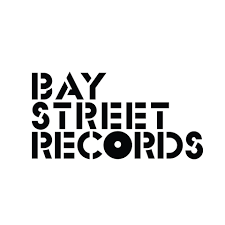
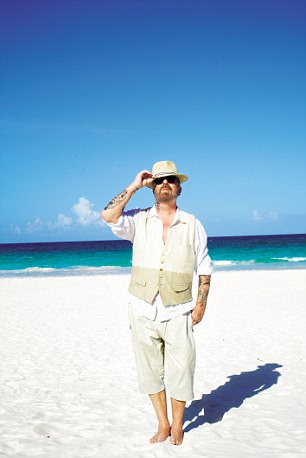

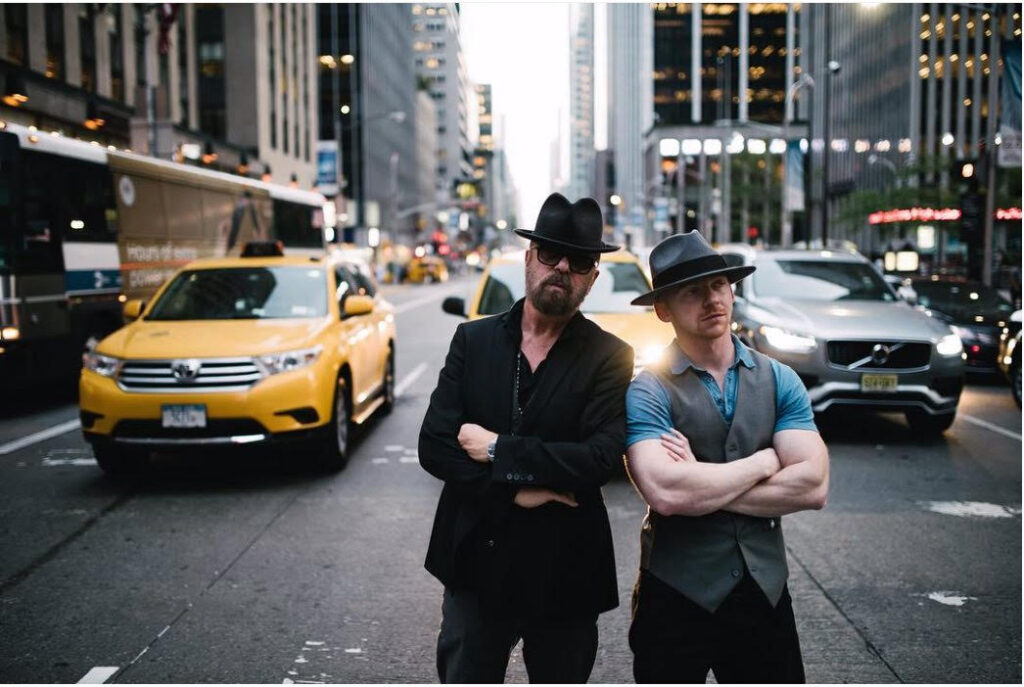
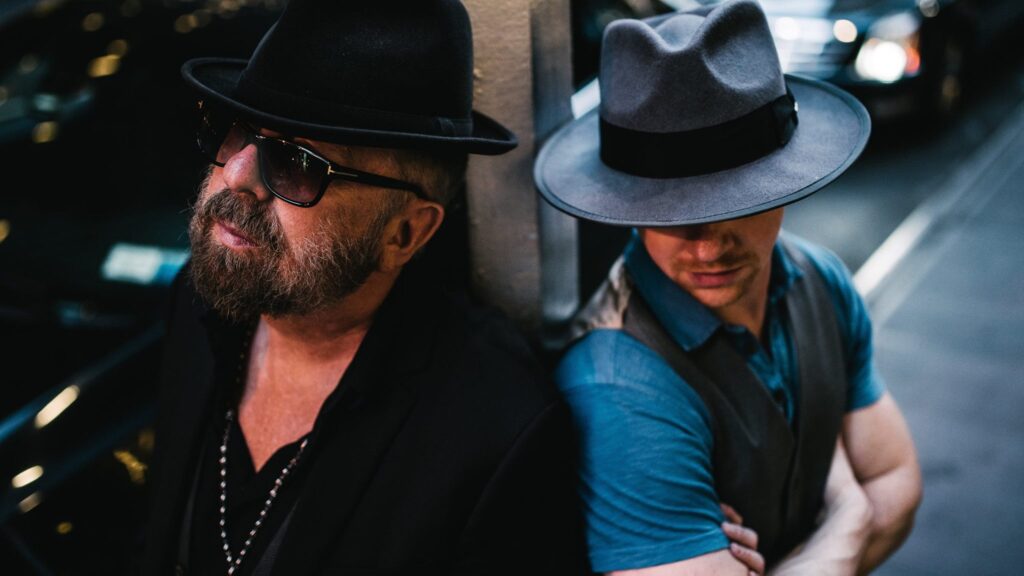
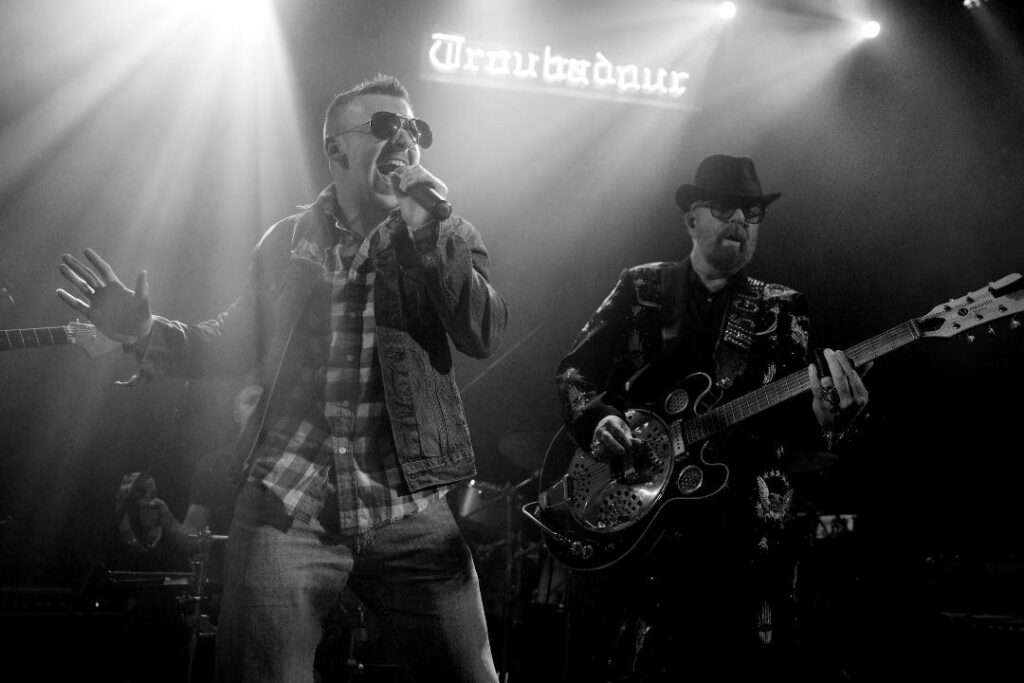

It’s great that you and Thomas have created such a unique friendship, and it’s such a great story how it all came about — with just a Tweet, right?
“Yeah. He did post something on Twitter and mentioned how he loved Eurythmics and something like that, and someone in my studio noticed it had a YouTube link on it, so I clicked it, and there was this very small, red-headed chap singing. I couldn’t see who it really was at first, I was just listening. It sounded sort of like a Nina Simone-type voice, so we expected to see a black girl singing but it was this ginger-haired, white skinny boy, and I was like, ‘What?’ I was really intrigued because Thomas really did have that feeling to his voice. It wasn’t learned, if you know what I mean. It was just coming out. So I contacted him, and, at first, I don’t think he believed it was me. But then I asked him, ‘Hey, I’m playing a date as Dave Stewart and Friends at the Troubadour (in Hollywood, California). Why don’t you come and do a support act?’ And he said, ‘I don’t play an instrument.” And I said, ‘It doesn’t matter, just come out and sing a cappella. You have such a great-sounding voice, and I think it would be an amazing moment.”
“When he arrived, he was a bit shaky. He had never been out of Louisiana had never been on a plane. He arrived in Los Angeles and was like, ‘I’m not sure about this place.’ I think he stayed up ’til 5 in the morning and flew straight back, and it took me a while to get him back out. But we eventually did a whole album, just sending stuff backward and forward. But when the first album was coming out, I had him come back and do a few songs with me on stage and the band would learn them and let people hear what we’ve done. It’s amazing. You can still see it on YouTube — Stewart Lindsey at The Roxy. He nailed it, and it was amazing. But he did the same thing – he stayed up to 5 in the morning and got on the plane and went straight back to Louisiana. One more time, I got him back to do (The Tonight Show with) Jimmy Fallon, and then we had Sirius Radio, and he had a flight to New York, but he had a connecting flight back to Louisiana. So, you know, I realized he likes to be in his own surroundings. So I thought, ‘Why not make another album (the same way)?’ We ended up being on lockdown anyway because of the virus. I have a little studio here in my basement, and we just started to record and carry on.”
“Thomas is obsessed with film noir, and I love that, as well. So we decided to make all black-and-white videos with just our iPhones. These are little side stories that we are going to put out. It’s about someone searching for this person called The Scorpion, who’s on the loose, but it’s actually about something in your own head. But it looks like a Raymond Chandler detective novel or something. It’s very weird, surrealistic, very dreamy.”
The Scorpion is referenced in the song ‘Last Night’ on the new album, right?
“Yeah. Thomas wrote, ‘Last night in my dream, I killed a scorpion.’ That’s a very weird song, but it’s also like the judge and jury. It’s all the same thing. There’s something from stopping everyone from being themselves and being free. It’s very weird, surrealistic, very dreamy, about being on trial, but it’s your own mind.”
Thomas writes the lyrics, and you do all the music?
“Mainly, Thomas writes the lyrics, but I might mumble something in the lyrics. But it’s really Thomas, and I’m writing the music, orchestrating it, producing it. … He has no idea what I’m going to do, what beat I’m going to do with chords. I just get this person singing in his bathroom, which is amazing. It’s so pure. But then the other way around, I’ll send him me playing the dobro guitar, and I’ll send him a third-minute long tune, and he will send that tune back with words.”
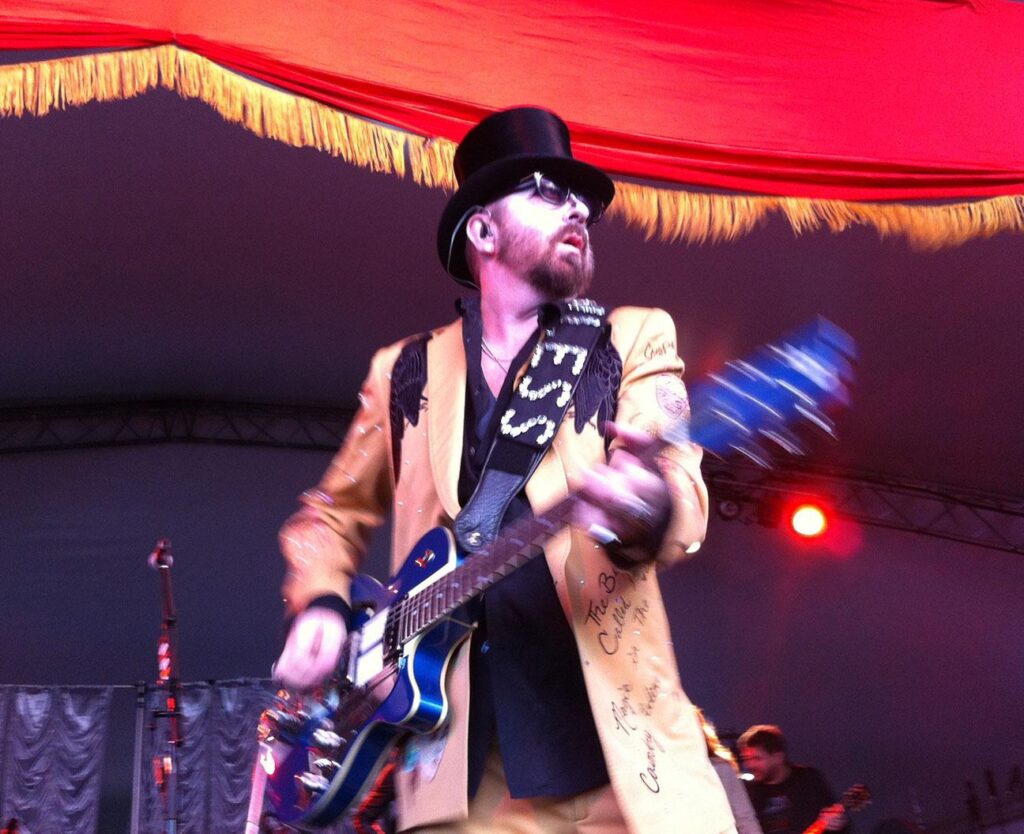
At this point Dave plays a guitar …
“These sort of surrealistic words. It’s about trying to find yourself and be friends with yourself and keeping your friends close. If you read the words, then you think this is really weird.”
You’ve recorded with so many people over the years. Have you ever recorded like you’ve done with Thomas on two albums?
“This is totally unique. Normally there’s a person sitting there with me and conspiring together. Even with Mick Jagger, he and I would be playing lines and words. It’s usually really quick, but I guess it’s a little the Elton John and Bernie Taupin thing. But, no, we’ve never been in the same room to record a song.”
Well, like you said, he likes to stay in Louisiana.
“He doesn’t like travel.”
Back in 2012, my wife and I saw you perform at Voodoo Fest in New Orleans, Louisiana. It was an outdoor concert, and it was so cold. It’s never cold in Louisiana, but that day, it was freezing.
“Yeah! It was so cold. My fingers were stuck to the guitar strings. It was so hard to play it was so cold.”
I don’t think I’ve ever known it to be that cold in New Orleans, but it was a great show.
“I know! It was so weird. I had a great brass band and and they played ‘Sweet Dreams’ with me. Old brass versions with this brass band and me conducting them — all the while, it was freezing. When it was over, I remember all of us running back to the caravan.”
Back to Thomas. Did you all ever think about him singing ‘Missionary Man’? It’s such a great blues song.
“Actually, I think he sang ‘Missionary Man’ on stage. I think I may be able to find it. He can nail any of those songs. Which for a guy is really hard to do, but he has that incredible voice. It must a 12-octave range or something like that.”
What’s next for Stewart Lindsey?
“What I’d like to do if all of this was over and possible for people to go in a small theater again. I’d like to do a very strange show about killing the demons in your mind. It would just be me and Thomas with the music and the songs, but it would be this weird play. And when it starts, it’s all black and white — just a very weird play. Everything in black and white. The set’s black and white, and he starts off with something about the scorpion, and it goes into this weird story. We’d play the songs and perform them, but it would be a mixture or doing a gig and a play. I just don’t know if Thomas would agree to travel and go around to do it. He might.”
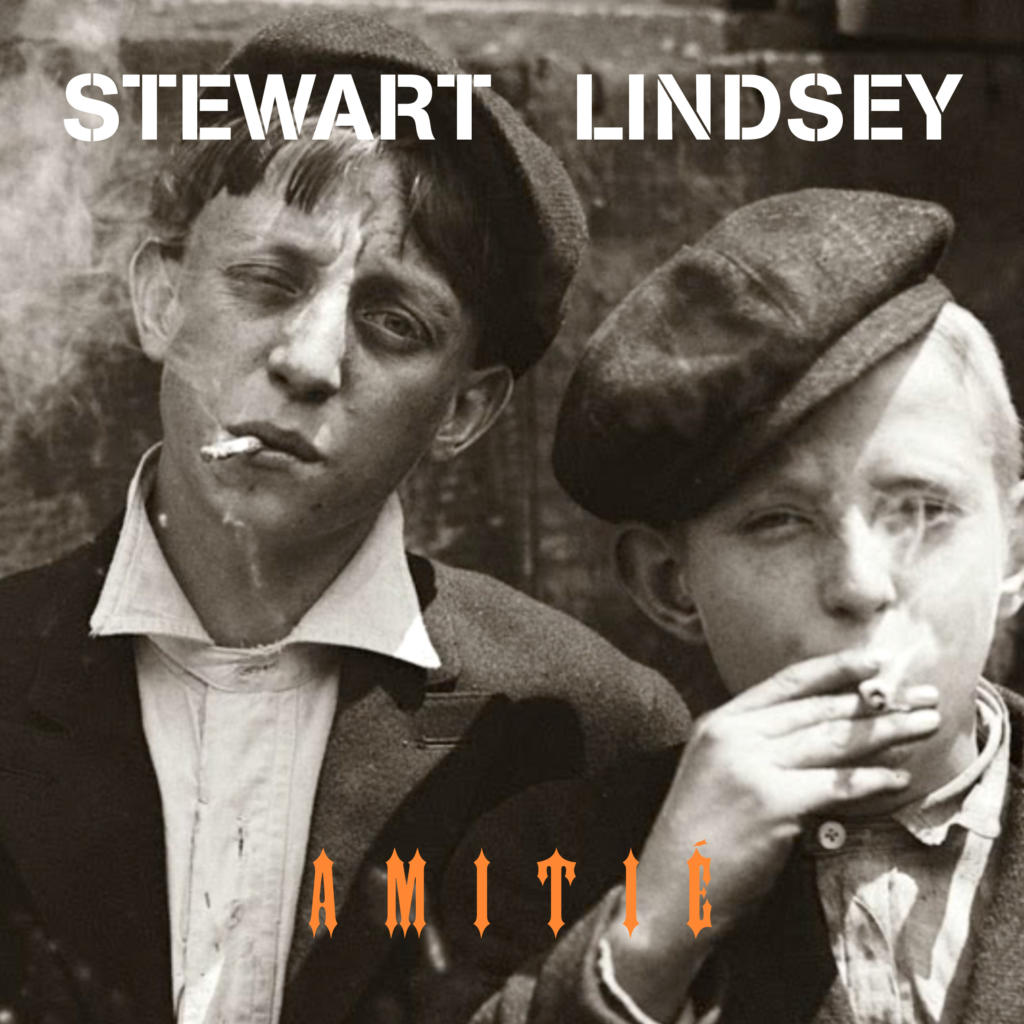
How did the new album come about?
“When I played this on a Dobro guitar in a Paris hotel room. I just sent it to him, and he sang over it. People are saying they can’t name what kind of music it is. It’s so weirdly atmospheric and familiar but can’t name it. And I feel the same. It’s a group of songs that we really love the feel of them. And I think that it’s a feeling — me playing a Dobro guitar in a Paris hotel room. Nobody was there, but I just had a feeling about playing that. It must have been the mood I was in. But he got that, and he will get something else. Thomas just seems to hone in on that.”
How did you come up with the album title? Amitié. Cool word.
“It kind of developed, and we were going over the album and Thomas is talking about a word that might encompass friendship, but in Cajun-Creole and in French and have a feeling about it and wakes you wonder, what is that?”
“There’s so much going on on the album. It’s almost a march into war on ‘Brothers in Arms’ – trumpets, military drums, and then all hell breaks loose. And then ‘Lord, Save Us Today, it’s just shimmering. There’s tons of reverb on reverb on it. We didn’t know all these things were going to happen. There’s a song on the album called ‘Turn Me Around’ and it’s really scary. Just sounds very voodoo. I tuned my guitar to where the strings were almost backing on it. Turn me around. That one feels more like now. It’s not even in the song structure. It’s just really wow. Something is really stirring here.”
“I knew we just were a great collaborating team, so I knew we’d do something again when something feels right. There was just some reason when I was in Paris, I think I would send Thomas this piece on Dobra guitar. And he replied that it was really cool, and then he sent himself singing on top of it. We didn’t say we were making an album or anything like that. We just said, ‘Hey let’s do another one’ and another one.”
Do you all work at a certain speed — a song a day or something?
“No, Thomas may go several days and not say anything, and I’ll get a text from Thomas, and it will be like, ‘My Lord, I think I’ve got something here.’ Sometimes he sends me something, and I’ll put something on hold and try to figure out what how I’m going to put chords to it. But then I’ll have an idea. And that can take a little while. I may not hear from him for a couple of days, and then he will just answers with, ‘Wow!’”
So let’s talk about Eurythmics. Some of your classic videos are being remastered in 4K and HD. Has that been under your supervision?
“Well, I was getting a bit annoyed that the record label was paying absolutely no attention to the quality, and they had, in fact, lost the Sweet Dreams video, which they had. And I said, ‘Look a lot of people are not bothering.’ The videos weren’t even being taken care of by the label but by somebody, I don’t know Harry somebody in Scotland or somewhere. And I asked if they’d get them out and see which is your best master and institute archives. They were meant to be in charge of our works and it was all over the place. They did put a number of people on it and looking in warehouses and finding the film. It’s still going on, actually.”
This must have made you very upset. You had created not only videos but mini works of art with your videos.
“It gets on my nerves big time. Annie and I were obsessed with making unusual but quality stuff and often shot on film, which is great and will last a long time. It’s always going to look really great, but sometimes they had uploaded a VHS copy.”
With all this happening, is it possible that we will finally see the release of your video albums, We Too Are One Too, Eurythmics Live and, of course, the fan favorite Savage, on DVD, BluRay or even digital release?
“They were all — and the concert — all shot on 35mm film. The Revenge concert. We Too Are One Too, Savage. We’d been making video albums before people even knew what to call them. They even let Polydor make a laserdisc, and we were signed by RCA!”
So will there be a release of your video albums at some point?
“I think myself and (Hipgnosis Song Fund founder) Merck Mercuriadis will really work toward that. Merck has taken notice of our songs, which I’ve moved my catalog of songs to and I also serve on the advisory board. Merck is always about song management and getting to the real masters of stuff. He’s obsessed with music, really. He can sing just about any Eurythmics lyric, even though he can’t really sing!”
Your videos deserve to be preserved. You created some of the best music videos ever made.
“Even the Beethoven video. It was made in 1987, but it’s so surreal and out there and futuristic. If someone put that out now, like a Billie Eilish, people would think it’s modern, but it was from so long ago.”
It’s clear that your fans internalize your songs — we know all the lyrics, we know all about your videos. Does it surprise you how much fans internalize your music and dig deep into the songs?
“Not really. Because I do that with other people’s songs. It’s a natural thing for people to do when they really connect with something. There’s something about musical notes and chords — they evoke certain emotions. It’s common knowledge that you can put this note with this note and make people feel this way and then add words on top and a melody. A certain kind of person will hone in on that, be it a Leonard Cohen song or a U2 song or a Eurythmics song. People have a strong bond with our music. I’ve had many people tell me or Annie or both of us how much a song meant to them at a certain time. Even though they might be interpreting it differently than we ever intended. The other day we played a song for Unicef called ‘Beautiful Child’. It was about two weeks ago live with me here and Annie in Los Angeles. Now we knew what that song was about, but it ended up that it meant a lot to people who had not really heard that song before on the Peace album. So it means a lot to people in a different context. It was actually a very fleeting glance of my young son through a window. That’s all you need, you know. Annie just noticed him. I was playing chords, and she started singing, ‘The way your head hangs down and let the tears come down.’ So we always thought that the best songwriting came out of moments like that. You can take a tiny spark or element of life and turn it into something really emotional. And that could just be the look on someone’s face. It can just be a feeling.”
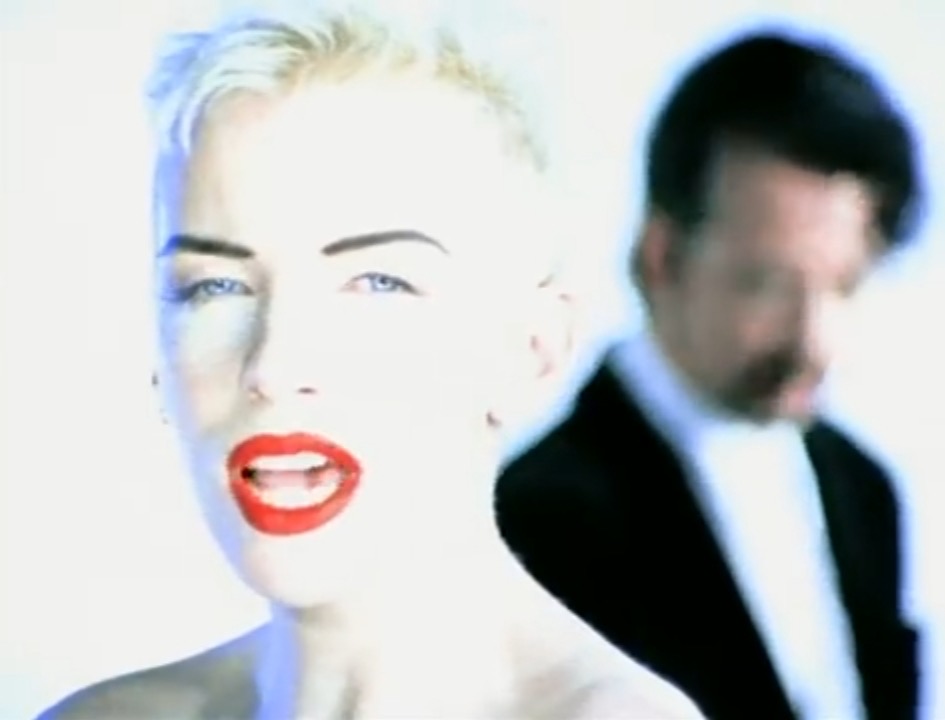
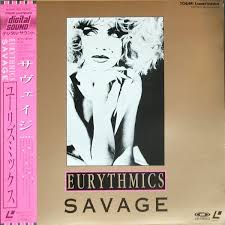
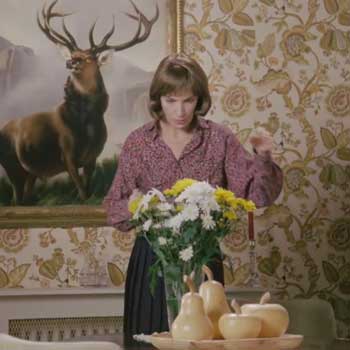
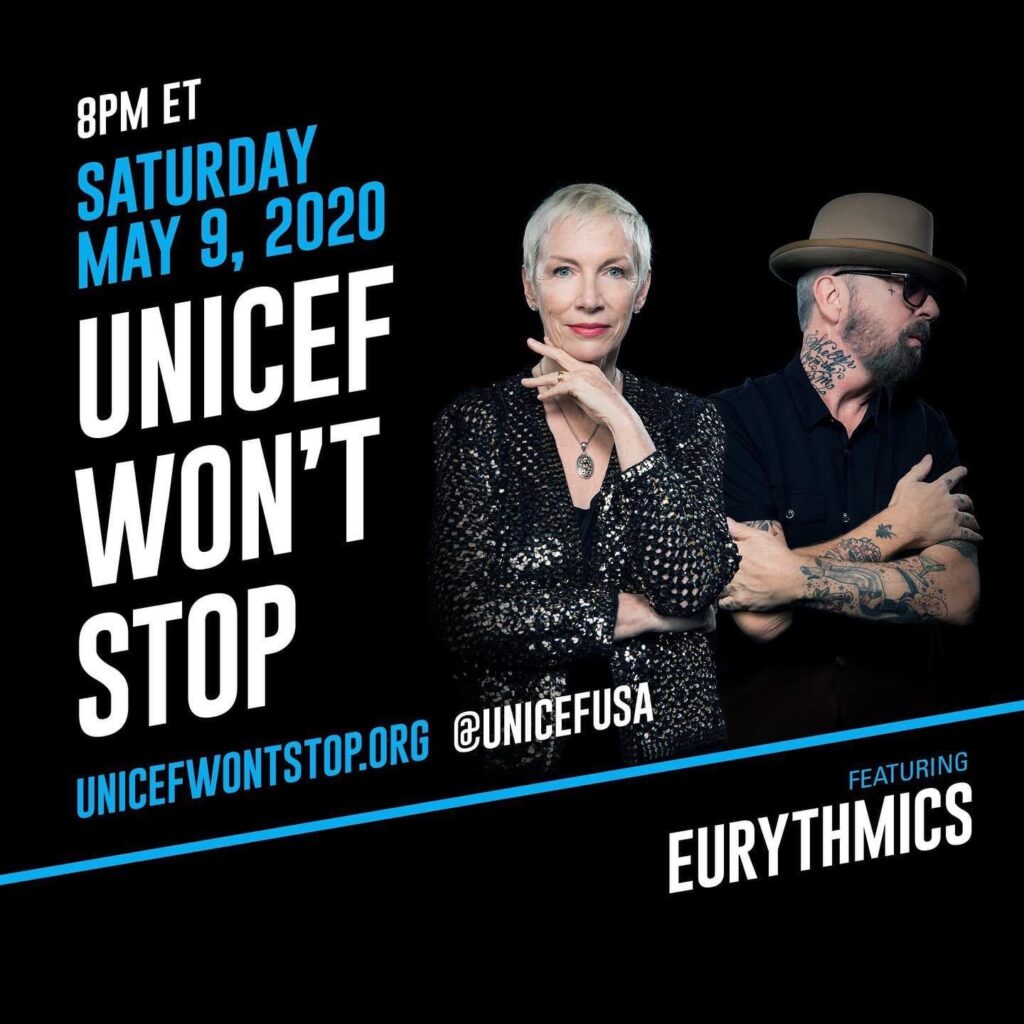
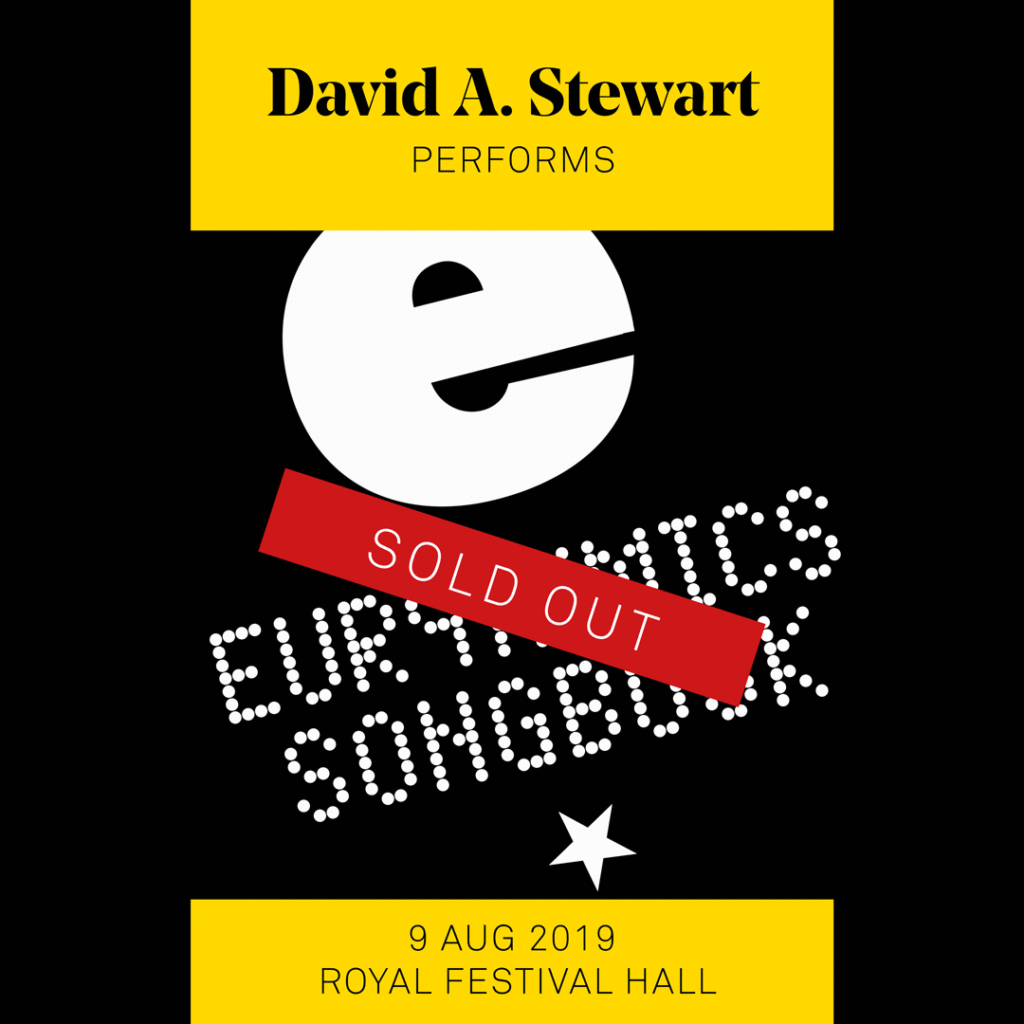
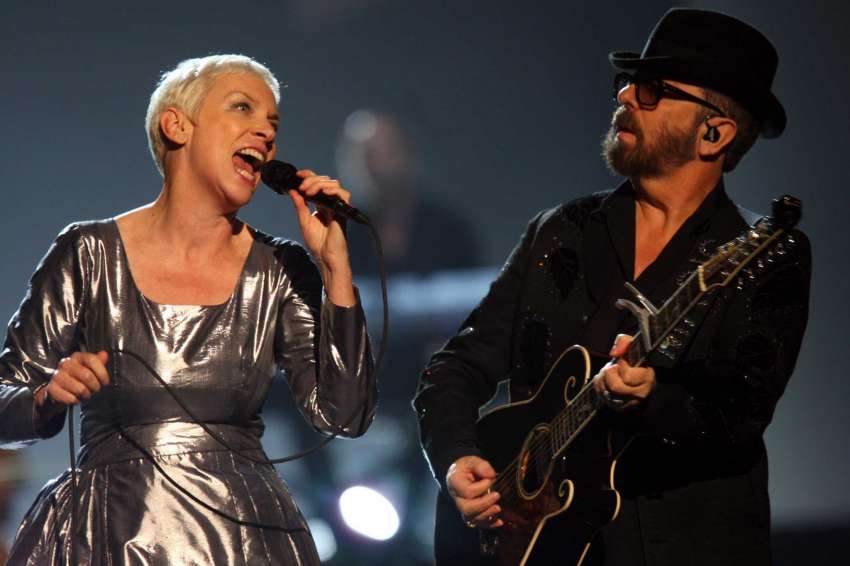
So which son was at the window?
“Django.”
Does he know that song was written with him in mind?
“Yeah, he does.”
I know you have an appointment, and I’ve taken far more of your time than I intended but I really must ask you about the Eurythmics Songbook concert that you did. I just thought the opening with Take Me To Your Heart, Never Gonna Cry Again and The Walk was so wonderful. That was wonderful theater. It was amazing to hear those songs again live and in this really amazing way.
“Where you there at the concert?”
No. I wish I had been. I just saw clips posted on YouTube.
“Oh, yeah. From fans. Honestly we had spent ages making this huge screen tell this story through color and movement, and I was telling a story of Eurythmics through the beginning and the sound. And it was really great fun and I was really pleased. And Nile Rodgers asked if I would do that for the festival, and then it got to the point to where Nile said he wanted to join in and all these people tumbled in. In the end, we had about 50 people on the stage.”
I had read that you had hoped to take it on tour this year, but now I’m assuming you won’t be able to do that.
“I was set to do that in October all through Europe and a double headline tour of North American with Nile this November. But before we even got to announce it earlier this year, then this whole pandemic came about before we could even announce it.”
The concert was wonderful. I loved the performances from your daughter and son, especially. Was there ever discussion about Annie being involved?
“She knew I was going to do it, and in fact she posted on Instagram to go and check it out, but at the time, she was, I mean, even now, Annie doesn’t really want to try long concerts. Even though we did the Sting thing later on in the year, where we played three songs, but she doesn’t talk about it. It exhausts her, and she’s been through quite a lot, you know, with various ailments. Doing a two-hour concert is exhausting and then traveling to the next city and then to the next city. For some reason, I’m still fine and very active, and I love to play live and love orchestrating and creating the actual show. I love every part about it, so, hopefully when people can go to theaters again, I can do it.”
Yes! I love that your kids are performing your songs. Annie’s daughter, Lola, is just releasing things, and she sang “There Must Be An Angel” with her mom. But she’s doing her own thing.
“I like that song “Pale” that she has out. That’s a great song.”
Maybe you could do something with the Eurythmics Songbook and maybe get the next generation, literally, involved – your kids and Lola.
“That’s funny. All of that was chatted about a couple of years ago, internally. But so many things keep changing, and also my kids are doing their thing. My daughter has an album coming out in about a month. And Django has his new music coming out in about a month, too. And, at the same time, we are trying to figure out how to do it. One, there’s the pandemic. And, B, what is releasing a record now? It’s a monster, a labyrinth of all this stuff coming out every day.”
At this point, the aforementioned local musicians begin arriving at Dave’s house to record, and he needs to excuse himself, but he thanks me for the interview. Of course, I’m the one most grateful to have another opportunity to talk to Dave, who is always generous with his time.
I’ve written an article from my interview with Dave and one conducted later that day with Thomas Lindsey, and several publications have expressed interest in publishing the story. But Rex Saldana with Eurythmics Video Visionaries (and a longtime friend) has been so generous to publish the interviews in a Q&A format, as only a small amount of the nearly 2 1/2 hours of interviews could possibly make a single article.
Mark A. Stevens is a longtime Eurythmics fan — from the day his older brother ran into the room with a tiny Panasonic tape recorder and said, “You have to hear this song I recorded off the radio!” The song was “Sweet Dreams (Are Made of This),” and Mark has been obsessed with all things Eurythmics since that time. He had a nearly three-decade career in newspapers, where he served as an editor and publisher at newspapers in Tennessee, Louisiana and South Carolina. He has won multiple writing awards and is also the author of several books, including the Amazon top seller, “The Clinchfield No. 1: Tennessee’s Legendary Steam Engine.” He lives in Pawleys Island, South Carolina, with his wife, Amy.
This interview with Dave Stewart is part of a two-part interview Mark conducted on June 2, 2020. He interviewed Dave by phone, and he interviewed Thomas Lindsey, Dave’s young songwriting partner in Stewart Lindsey, later that same day, also by phone. An article, taken from those two interviews, will be published in various newspapers, magazines and websites over the next few weeks. It’s the second time Mark has had the opportunity to interview Dave, to which he says, “It’s always an amazing experience to talk to Dave. He’s exactly like you’d imagine — friendly, enthusiastic, smart. This time, the interview went for about an hour and 15 minutes. I kept thinking the publicist could come back on the phone and say we had to stop talking but had musicians not shown up at Dave’s house for a recording session, I think we would have kept talking!”

